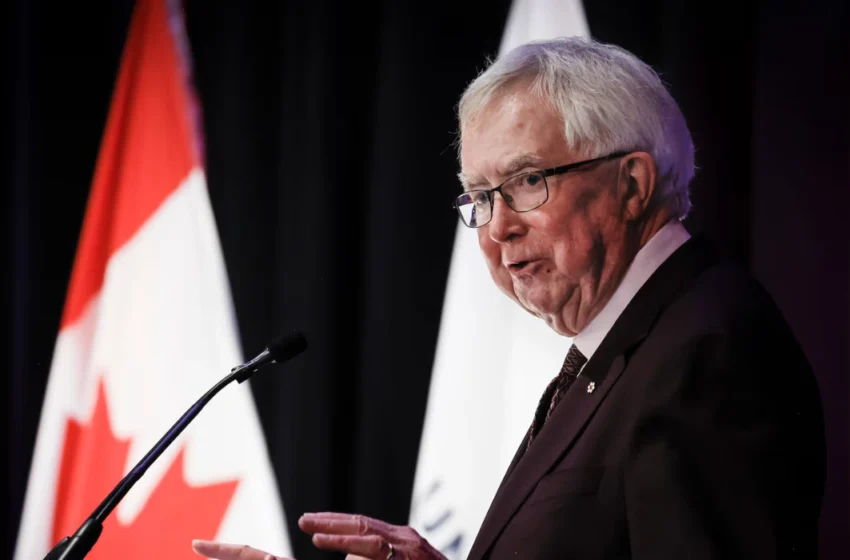
Canada ( Europe Brief News): Former Canadian PM Joe Clark calls Trump “a showman before he’s a statesman” amid annexation threats and trade tensions between the U.S. and Canada.
Trump is anticipated to attend the G7 conference, which is taking place this week in Kananaskis, Alberta, and will bring together the leaders of the most developed economies in the world.
Vassy Kapelos, host of CTV Question Period, asked Clark what he has been thinking about in the past few months as Trump has imposed massive tariffs and repeatedly threatened to conquer Canada ahead of the event in Alberta.
“He is a showman before he’s a statesman, and we have to bear that in mind,”
Clark said, in an interview airing Sunday.
“There’s some degree to that in everyone in public office. You can’t ignore your media when you’re conducting public policy, now.”
“But his inclination as a quite unique kind of showman is to make his own impact rather than find agreement,”
Clark added.
“That’s very difficult to deal with, but it’s not impossible.”
Trump launched his trade war in February, implementing a slate of tariffs on Canadian goods and threatened to use “economic force” to make Canada the 51st state.
“One of the questions I think all of us are asking regarding the United States is, who else is around him who might be a restraining influence,”
Clark said.
Although there has been significant progress on a bilateral agreement between the United States and Canada, sources told CTV News that any certainty regarding a timeline is becoming even more erratic due to Trump’s temperament and recent domestic pressures, including the protests in Los Angeles, California, and the president’s conflict with billionaire businessman Elon Musk.
In response to a question concerning his expectations for the summit and any possible bilateral discussions between Trump and Prime Minister Mark Carney, Clark stated that Carney’s strength is his ability to strategically present his argument to the president.
Additionally, he stated that it is “always essential” for the leaders to have private conversations away from the cameras.
Although there has been significant progress on a bilateral agreement between the United States and Canada, sources told CTV News that any certainty regarding a timeline is becoming even more erratic due to Trump’s temperament and recent domestic pressures, including the protests in Los Angeles, California, and the president’s conflict with billionaire businessman Elon Musk.
In response to a question concerning his expectations for the summit and any possible bilateral discussions between Trump and Prime Minister Mark Carney, Clark stated that Carney’s strength is his ability to strategically present his argument to the president.
Additionally, he stated that it is “always essential” for the leaders to have private conversations away from the cameras.
“One of the unusual factors of this summit with President Trump is that probably much more of the effective work will be done, in effect, off camera and away from some of the formal proceedings,”
Clark said.
“And I know that the proceedings are not themselves broadcast live, but nonetheless, there is a performance aspect to his approach to public life that is now not as productive as a quieter approach might be.”
Under former Prime Minister Brian Mulroney, Clark was Prime Minister from 1979 to 1980 and Secretary of State for External Affairs (now Foreign Affairs) from 1984 to 1991.
How serious are Trump’s annexation threats to Canada’s sovereignty?
Trump’s frequent threats to make Canada the “51st state” and his use of economic pressure, including tariffs on Canadian exports, raise concerns among analysts that his intentions are persistent and might go beyond rhetoric, making forceful annexation a real possibility rather than a joke.
Canada is susceptible to coercive tactics because of its strong economic reliance on the United States, with almost three-quarters of its exports moving south. It is believed that Trump’s threats and tariffs are intended to coerce Canada into making concessions, such as granting it access to vital minerals.
Any attempt to acquire Canada by force, according to military experts, would lead to a protracted and expensive insurgency. Weaker parties can maintain guerilla resistance, as demonstrated by historical and international examples, which would deplete American resources and destabilize the area, rendering annexation politically and militarily impossible.


